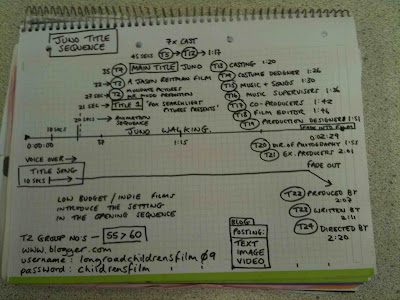
What is recommended for audience research for AS/A2? How can this be presented? Should we discourage the numerous questionnaires approach?
The practice of students giving out questionnaires and putting all the returned examples in their evidence has been discouraged for a long time. The main problem with this approach is not the survey method per se but the limited nature of the questions and the claims made for the responses. For example, asking ten fellow students their favourite genre of film, finding that seven out of ten say ‘horror’ and then using that to justify making a horror film opening as a result. Audience research is more productive if it addresses the following:
The practice of students giving out questionnaires and putting all the returned examples in their evidence has been discouraged for a long time. The main problem with this approach is not the survey method per se but the limited nature of the questions and the claims made for the responses. For example, asking ten fellow students their favourite genre of film, finding that seven out of ten say ‘horror’ and then using that to justify making a horror film opening as a result. Audience research is more productive if it addresses the following:
- What do real audiences consume?
- Who are the specific audiences for particular products?
- How do media industries target those audiences?
Those questions require research of a different kind to the local questionnaire method; initial research online looking for data about the industry students are dealing with, such as box office figures for films or circulation figures for magazines would be a good starting point. Part of research involves looking for examples of how marketing works across a range of media- for films this includes considering posters, trailers and their selling points, for example.
Later audience research should be considered in a series of stages, each involving formative qualitative feedback. So, for example:
- Pitching the product to the rest of the group and taking feedback, noting the responses from this and deciding how to act as a result.
- Showing early drafts of the work (such as an animatic of the storyboard or a mock up front cover) and asking some carefully framed questions about them to get a sense of the audience’s understanding of the product rather than just a measure of whether the audience liked it.
- Taking peer feedback at later stages and then again on the finished product; asking things like “can you tell me what happened in that sequence, what the relationship between the characters is and what do you think will happen in the rest of the film?” to look for audience readings of the work. ‘
These approaches can be presented in a variety of ways- video extracts with framing commentary from the makers; audio, written. All would help move away from the pie chart of responses model which tends to be fairly unproductive.